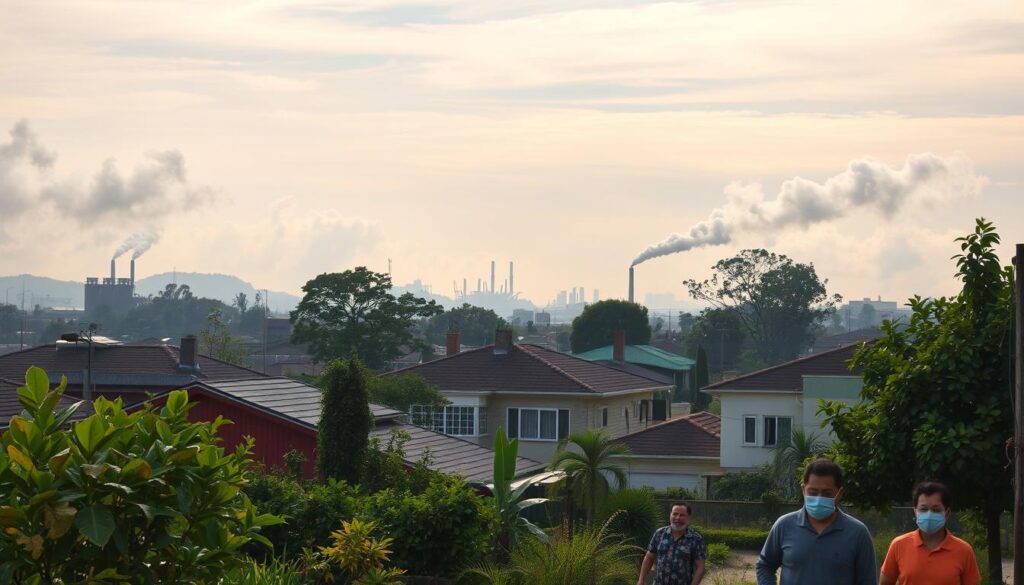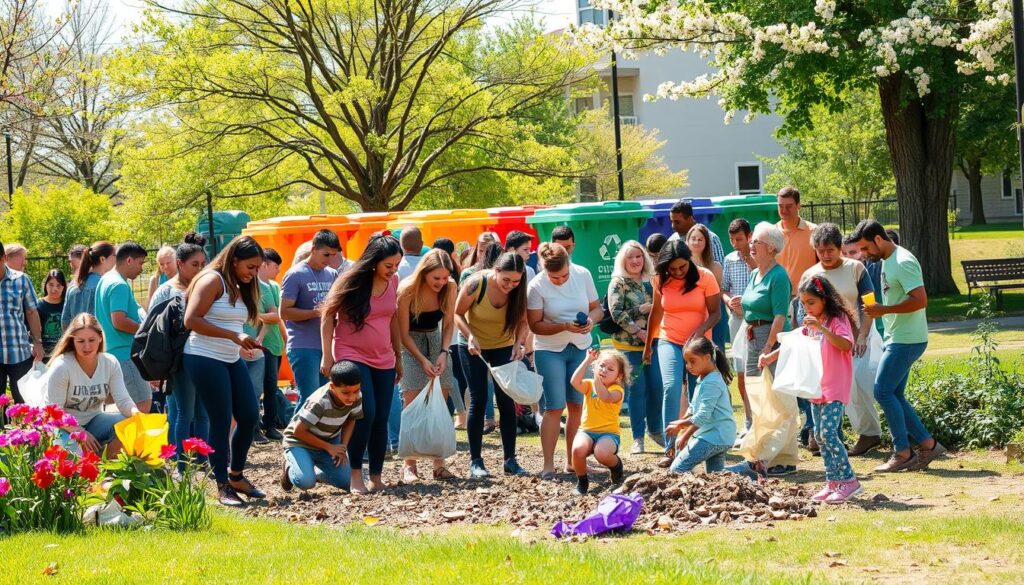Are you fed up with litter, bins full of trash, and loud neighbours? You’re not alone. In the UK, people want to make their areas cleaner and nicer. Is there a way to fix these problems and make living together better?
Key Takeaways
- The UK Government’s Anti-Social Behaviour Action Plan aims to implement hotspot policing and expand community support services to tackle anti-social behaviour.
- New legislation provides social landlords with enhanced tools and powers to address issues like fly-tipping, littering, and graffiti in their communities.
- Effective community engagement and local partnership arrangements are crucial for addressing the causes and effects of anti-social behaviour.
- Landlords are encouraged to work closely with partner agencies, local authorities, police, residents, and community organisations to find solutions.
- Tackling air pollution from vehicles is a key priority, as it is linked to 43,000 deaths per year in the UK.
Understanding the Impact of Air Pollution
Air pollution is a big worry in many places. It harms us in many ways. Nitrogen oxides and particulate matter are two main problems.
Harmful Effects of Nitrogen Oxides and Particulate Matter
Nitrogen oxides come from burning fuel, like in cars and factories. They can hurt our lungs. This can make it hard to breathe and cause coughing.
Studies show NOx can also lead to heart disease and even death. It’s very serious.
Particulate matter, or PM2.5, is another big worry. These tiny particles can get into our blood. They can cause heart and lung problems, dementia, and strokes.
Most PM2.5 comes from cars. It hurts the poor the most, as they live in the dirtiest places.
| Pollutant | Health Impacts |
|---|---|
| Nitrogen Oxides (NOx) |
|
| Particulate Matter (PM2.5) |
|
Not everyone is affected the same by air pollution. Kids, old people, and those with health issues are more at risk. We need to fix this to keep our communities healthy.

“Air pollution is a serious threat to public health, with nitrogen oxides and particulate matter causing a range of devastating effects, from lung disease to heart attacks. We must take action to protect our communities, especially the most vulnerable.”
Neighbour Disputes over Bins
Many places in the UK have problems with bin placement and collection. This can make the air dirty if not fixed. Common issues include noise, parking, and overgrown trees and hedges.
These are usually not the council’s or police’s job. But, call them if a neighbour is violent or threatening.
Encouraging Sustainable Transportation
Using walking, cycling, and public transport can clean the air. Just one less car trip a month can help a lot. We need better paths and transport for greener travel.
| Type of Neighbour Dispute | Percentage of Occurrences |
|---|---|
| Noise (loud music, barking dogs) | 35% |
| Parking | 25% |
| Property Boundaries | 15% |
| Overgrowing Trees and Hedges | 10% |
| Children Playing in the Street | 5% |
| Other | 10% |
Even small disagreements can harm neighbour relationships. Unfixed issues can make life hard, leading to fear or isolation. Trying to talk things out and find common ground is a good start.
For those renting or in social housing, landlords can help. There are resources for noise, boundary, and tree issues. If things get worse, report it to the authorities.
Building a Collaborative Community
Working together is key to a greener future. By joining hands, we can make big changes. This helps us all live in a cleaner way.
Choosing leaders who care about the planet is a good start. They can lead the way to using less carbon and more green energy. Environmental action plans help us stay on track and see our progress.
Getting everyone involved is crucial. In Amsterdam, a small market grew from two to fifty stalls. Talking to half of the stallholders helped a lot.
There are many ways to get people involved. From fixing bin issues to promoting green travel. Community mediation helps solve problems and brings us closer together.
| Initiative | Participation | Outcome |
|---|---|---|
| Zero Waste Lab (ZWL) on Plein ’40–’45 street market |
|
Increased community engagement and environmental action |
| Community mediation |
|
Helps resolve disputes and foster a stronger sense of community |
Together, we can achieve great things. We can make our community more sustainable. This makes our neighbourhood a better place for everyone.
“Community engagement is the key to successful environmental action plans. When people work together, they can make a real difference in addressing local challenges and creating a more sustainable future.”

Conclusion
Air pollution is a big problem for our health and the planet. Cars are a big part of it. But, we can all do things to help.
We can sort out bin disputes and use green transport. This way, we can make our areas cleaner and healthier.
We can make big changes by improving walking, cycling, and public transport. Changing how we act can also help a lot. Together, we can make our area greener and better.
Working together is key to better air and health. We can make our neighbourhoods better. The legal cases show why we need to solve problems nicely and get help when needed.
